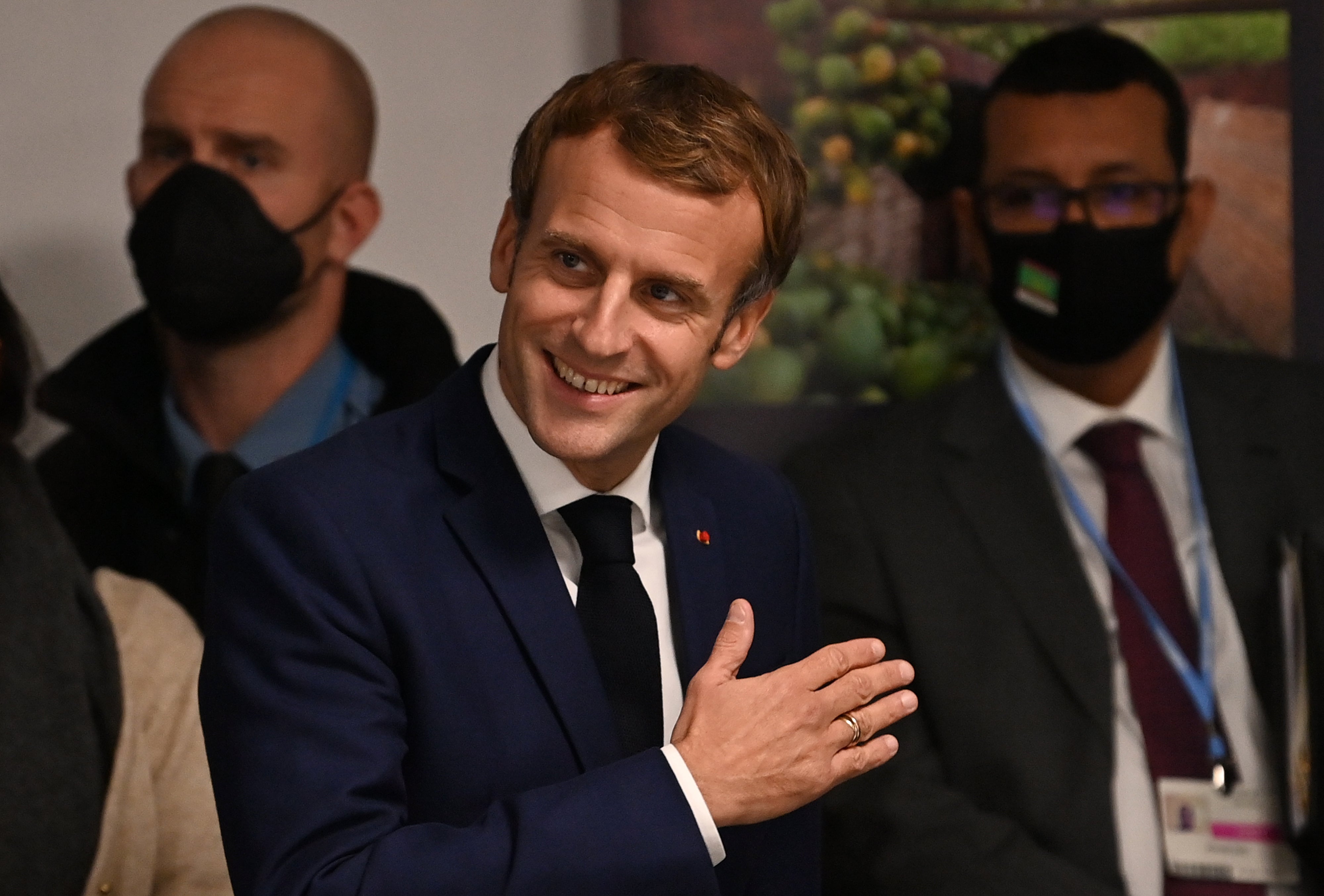Truss strikes conciliatory tone ahead of meeting with ‘friend or foe’ Macron
The Prime Minister stressed the need for a ‘constructive relationship’ with the French.

Liz Truss sought to strike a conciliatory tone ahead of meeting with Emmanuel Macron, despite declining to say whether she believes the French President is a “friend or foe”.
The Prime Minister stressed the need for a “constructive relationship” combatting Vladimir Putin’s invasion of Ukraine and unauthorised migrant crossings of the Channel in small boats.
The comments ahead of meeting Mr Macron at a United Nations summit in New York on Tuesday appeared to mark a softening of tone following post-Brexit tensions on Northern Ireland and fishing rights.
However, officials noted the remarks to reporters flying with Ms Truss came on the day of the Queen’s funeral, shortly after a period of subdued politics.
Ms Truss sparked a diplomatic row during the Tory leadership contest when she declined to give a clear answer when asked if the president of the allied nation was a “friend or foe”.
Instead, the then-foreign secretary said last month that the “jury’s out”. Ms Truss did not return the verdict during an interview with journalists travelling with her to the summit, but stressed she wants a “constructive relationship with France”.
“Of course that means working together on the issue of migration. There are a number of other issues we need to work together on, whether it’s energy security, whether it’s other issues relating to our relationship with the EU – but most importantly, it’s ensuring that Putin does not succeed in Ukraine,” she said.
That is one of the issues that we need to work with France in a constructive way on
The Prime Minister was pressed on Channel crossings, with provisional figures suggesting more than 29,700 have made the crossing this year – exceeding last year’s total of 28,526.
“That is one of the issues that we need to work with France in a constructive way on,” Ms Truss responded.
Ms Truss and Mr Macron shook hands as they met on the margins of the summit. The French president offered her tea or coffee, and Ms Truss chose coffee.
Cabinet minister Michelle Donelan said there was no need for Ms Truss to say sorry to Mr Macron about her “jury’s out” comment.
“The Prime Minister is entitled to make comments on any topic she should see fit to do so, so I don’t think she needs to apologise,” the Culture Secretary told Times Radio.
The Prime Minister’s talks with Mr Macron, and with European Commission president Ursula von der Leyen, are likely to feature the post-Brexit legislation on Northern Ireland.
Ms Truss will meet Mr Macron on Tuesday, before seeing Mr Biden and Ms von der Leyen on Wednesday. She had been set to talk to the US President in Britain over the weekend as he visited for the Queen’s funeral, but the meeting was postponed.
Downing Street has maintained the position on the controversial Northern Ireland Protocol Bill, which the EU and others say will break international law.
With the US President deeply proud of his Irish heritage, he may seek assurances Ms Truss’s plans will not impact the peace process.
On Ukraine, Ms Truss is seeking to rally nations to end energy dependence on Vladimir Putin’s Russia as she commits to fresh spending supporting Volodymyr Zelensky’s resistance.
She pledged to spend at least £2.3 billion next year on military aid helping Ukraine – matching or exceeding the total spent in 2022.
Bookmark popover
Removed from bookmarks